Tuesday, September 19, 2017
Please join us in celebrating
TTIC CAO Installation Symposium, Convocation and Commencement
TTIC welcomes new Chief Academic Officer Avrim Blum and thanks David McAllester for his years of service.
RSVP by 9/8/2017 (RSVP Form)
Schedule of Events listed subject to change. Event Inquiries? Email: CAOSymposium@ttic.edu
8:00AM - Doors Open / Breakfast
8:50AM–3:00PM - Symposium - (TTIC - 6045 S Kenwood Ave, Chicago, IL 60637)
Speakers including:
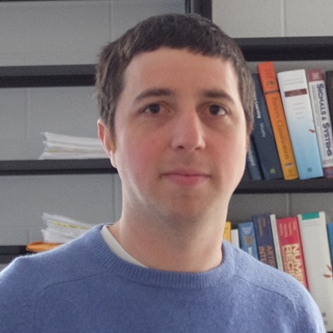
Abstract: Vision problems are inherently ambiguous and we can only make educated guesses about the content of images. A natural approach to address this problem involves using prior models of the world. In this talk I will describe a class of probabilistic grammars that generate complex scenes with objects organized into hierarchical structures. Probabilistic scene grammars capture relationships between objects using compositional rules. For example, a rule might specify the different parts that can make up a face. Such rules provide contextual cues for inference with ambiguous data. This leads to a unified framework for a variety of vision tasks. I will illustrate experiments on two very different applications. The first application involves detecting curves in noisy images. The second application involves localizing faces and parts of faces. In both applications the same framework and computational engine leads to robust algorithms that can combine weak local information to reason about a scene.
Bio: Pedro Felipe Felzenszwalb received the BS degree in computer science from Cornell University in 1999. He received the MS and PhD degrees in computer science from the Massachusetts Institute of Technology in 2001 and 2003. He was a professor of Computer Science at the University of Chicago from 2004 to 2011. He joined Brown University in 2011, where he is currently a Professor of Engineering and Computer Science. His work has been supported by the National Science Foundation, including a CAREER award received in 2008. His main research interests are in computer vision, geometric algorithms and artificial intelligence. He was a program chair for the 2011 IEEE Conference on Computer Vision and Pattern Recognition. In 2010 he received the Longuet-Higgins Prize for a fundamental contribution to computer vision. He received the 2013 ACM Grace Murray Hopper Award. He also received an IEEE Technical Achievement Award in 2014
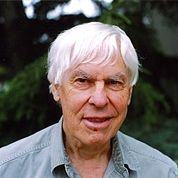
Abstract: We will discuss the problem of how the myocites each with their own rhythm organize to yield the heart beat.
Bio: Stephen Smale began his career as an instructor at the college at the University of Chicago. In 1958, he astounded the mathematical world with a proof of a sphere eversion. He then cemented his reputation with a proof of the Poincaré conjecture for all dimensions greater than or equal to 5, published in 1961; in 1962 he generalized the ideas in a 107-page paper that established the h-cobordism theorem.
After having made great strides in topology, he then turned to the study of dynamical systems, where he made significant advances as well. His first contribution is the Smale horseshoe that started significant research in dynamical systems. He also outlined a research program carried out by many others. Smale is also known for injecting Morse theory into mathematical economics, as well as recent explorations of various theories of computation.
In 1998 he compiled a list of 18 problems in mathematics to be solved in the 21st century, known as Smale’s problems. This list was compiled in the spirit of Hilbert’s famous list of problems produced in 1900. In fact, Smale’s list contains some of the original Hilbert problems, including the Riemann hypothesis and the second half of Hilbert’s sixteenth problem, both of which are still unsolved. Other famous problems on his list include the Poincaré conjecture (now a theorem, proved by Grigori Perelman), the P = NP problem, and the Navier–Stokes equations, all of which have been designated Millennium Prize Problems by the Clay Mathematics Institute.
In 1960 Smale was appointed an associate professor of mathematics at the University of California, Berkeley, moving to a professorship at Columbia University the following year. In 1964 he returned to a professorship at UC Berkeley where he has spent the main part of his career. He retired from UC Berkeley in 1995 and took up a post as professor at the City University of Hong Kong. He also amassed over the years one of the finest private mineral collections in existence. Many of Smale’s mineral specimens can be seen in the book—The Smale Collection: Beauty in Natural Crystals.
In 2002,Smale became a Professor at the Toyota Technological Institute at Chicago; starting August 1, 2009, he is also a Distinguished University Professor at the City University of Hong Kong.
In 2007, Smale was awarded the Wolf Prize in mathematics.
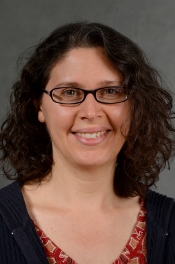
Abstract: Speech technologies, such as automatic speech recognition, typically address the mapping between acoustic signals and the corresponding written words. Given sufficient labeled speech data, modern speech technologies have achieved remarkable performance. However, for many languages, obtaining labeled data is expensive or even impossible. In addition, modern speech technologies typically do not consider the semantic content in the speech signal.
This talk will consider whether we can address both of these shortcomings by learning from unlabeled speech paired with images. I will present our recent work using images paired with spoken captions to learn speech concepts. Without access to any transcribed speech, the resulting model can spot keywords in new speech input, and also learns to spot semantic concepts.
Joint work with Herman Kamper, Shane Settle, and Greg Shakhnarovich
Bio: Karen Livescu is an Associate Professor at TTIC. She completed her PhD and post-doc in electrical engineering and computer science at MIT and her Bachelor’s degree in Physics at Princeton University. Karen’s main research interests are at the intersection of speech and language processing and machine learning. Her recent work includes multi-view representation learning, segmental neural models, acoustic word embeddings, and automatic sign language recognition. She is a member of the IEEE Spoken Language Technical Committee, an associate editor for IEEE Transactions on Audio, Speech, and Language Processing, and a technical co-chair of ASRU 2015 and 2017.
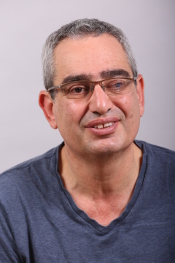
Abstract: In this work we derive a variant of the classic Glivenko-Cantelli Theorem, which asserts uniform convergence of the empirical Cumulative Distribution Function (CDF) to the CDF of the underlying distribution. Our variant allows for tighter convergence bounds for extreme values of the CDF.
We apply our bound in the context of revenue learning, which is a well-studied problem in economics and algorithmic game theory. We derive sample-complexity bounds on the uniform convergence rate of the empirical revenues to the true revenues, assuming a bound on the k-th moment of the valuations, for any (possibly fractional) k>1.
For uniform convergence in the limit, we give a complete characterization and a zero-one law: if the first moment of the valuations is finite, then uniform convergence almost surely occurs; conversely, if the first moment is infinite, then uniform convergence almost never occurs.
Join work with Noga Alon, Moshe Babaioff, Yannai A. Gonczarowski, Shay Moran, and Amir Yehudayoff
Bio: Prof. Yishay Mansour received his PhD from MIT in 1990, following it he was a postdoctoral fellow in Harvard and a Research Staff Member in IBM T. J. Watson Research Center. Since 1992 he is at Tel-Aviv University, where he is currently a Professor of Computer Science and has serves as the first head of the Blavatnik School of Computer Science during 2000-2002. He was the founder and first director of the Israeli Center of Research Excellence in Algorithms.
Prof. Mansour held positions with IBM Research, Bell Labs, AT&T research Labs, MicroSoft Research and currently has a part time position at Google Research He has mentored the start-ups Riverhead, which was acquired by Cisco, Ghoonet and Verix.
Prof. Mansour has published over 100 journal papers and over 200 proceeding papers in a variety of areas of computer science with special emphasis on machine learning, algorithmic game theory, communication networks, and theoretical computer science and has supervised over a dozen graduate students in those areas.
Prof. Mansour is an ACM fellow from 2014, he is currently an associate editor in a number of distinguished journals and has been on numerous conference program committees. He was both the program chair of COLT (1998) and the STOC (2016) and served twice on the COLT steering committee.
11:50AM-1:50PM Poster Session / Lunch
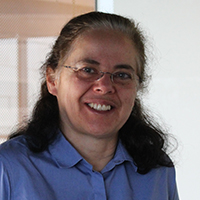
Abstract: Selfish behavior can often lead to suboptimal outcome for all participants, a phenomenon illustrated by many classical examples in game theory. Over the last decade the research community has developed good understanding on how to quantify the impact of strategic user behavior on the overall performance in many games (including traffic routing as well as online auctions). In this talk we will focus on games where players use a form of learning that helps them adapt to the environment, and consider two closely related questions: What are broad classes of learning behaviors that guarantee that game outcomes converge to the quality guaranteed by the price of anarchy, and how fast is this convergence. Or asking these questions more broadly: what learning guarantees high social welfare in games, when the game or the population of players is dynamically changing.
Bio: Eva Tardos is a Jacob Gould Schurman Professor of Computer Science at Cornell University, was Computer Science department chair 2006-2010. She received her BA and PhD from Eotvos University in Budapest. She joined the faculty at Cornell in 1989. Tardos’s research interest is algorithms and algorithmic game theory. She is most known for her work on network-flow algorithms, approximation algorithms, and quantifying the efficiency of selfish routing. She has been elected to the National Academy of Engineering, the National Academy of Sciences, the American Academy of Arts and Sciences, and is an external member of the Hungarian Academy of Sciences. She is the recipient of a number of fellowships and awards including the Packard Fellowship, the Goedel Prize, Dantzig Prize, Fulkerson Prize, ETACS prize, and the IEEE Technical Achievement Award. She is editor editor-in-Chief of the Journal of the ACM, and was editor in the past of several other journals including the SIAM Journal of Computing, and Combinatorica, served as problem committee member for many conferences, and was program committee chair for SODA’96, FOCS’05, and EC’13.
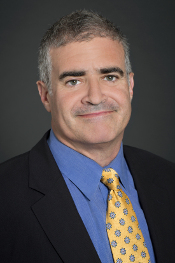
Bio: Lance Fortnow is professor and chair of the School of Computer Science of the College of Computing at the Georgia Institute of Technology. His research focuses on computational complexity and its applications to economic theory.
Fortnow received his Ph.D. in Applied Mathematics at MIT in 1989 under the supervision of Michael Sipser. Before he joined Georgia Tech in 2012, Fortnow was a professor at Northwestern University, the University of Chicago, a senior research scientist at the NEC Research Institute and a one-year visitor at CWI and the University of Amsterdam. Since 2007, Fortnow holds an adjoint professorship at the Toyota Technological Institute at Chicago.
Fortnow’s research spans computational complexity and its applications, most recently to microeconomic theory. His work on interactive proof systems and time-space lower bounds for satisfiability have led to his election as a 2007 ACM Fellow. In addition he was an NSF Presidential Faculty Fellow from 1992-1998 and a Fulbright Scholar to the Netherlands in 1996-97.
Among his many activities, Fortnow served as the founding editor-in-chief of the ACM Transaction on Computation Theory, served as chair of ACM SIGACT and on the Computing Research Association board of directors. He served as chair of the IEEE Conference on Computational Complexity from 2000-2006. Fortnow originated and co-authors the Computational Complexity weblog since 2002, the first major theoretical computer science blog. He has thousands of followers on Twitter.
3:30PM - Convocation, Commencement, and CAO Installation Ceremony
Masters Graduation - Blake Woodworth, Falcon Dai, Nick Kolkin, Ruotian Luo, Rachit Nimavat, Shubham Toshniwal, and Renyu Zhang
Phd Graduation - Somaye Hashemifar, Behnam Neyshabur, Hao Tang, Zhiyong Wang, and Payman Yadollahpour
CAO Installation
Comments by:

Bio: Eva Tardos is a Jacob Gould Schurman Professor of Computer Science at Cornell University, was Computer Science department chair 2006-2010. She received her BA and PhD from Eotvos University in Budapest. She joined the faculty at Cornell in 1989. Tardos’s research interest is algorithms and algorithmic game theory. She is most known for her work on network-flow algorithms, approximation algorithms, and quantifying the efficiency of selfish routing. She has been elected to the National Academy of Engineering, the National Academy of Sciences, the American Academy of Arts and Sciences, and is an external member of the Hungarian Academy of Sciences. She is the recipient of a number of fellowships and awards including the Packard Fellowship, the Goedel Prize, Dantzig Prize, Fulkerson Prize, ETACS prize, and the IEEE Technical Achievement Award. She is editor editor-in-Chief of the Journal of the ACM, and was editor in the past of several other journals including the SIAM Journal of Computing, and Combinatorica, served as problem committee member for many conferences, and was program committee chair for SODA’96, FOCS’05, and EC’13.

Bio: Robert Fefferman is the Max Mason Distinguished Service Professor of Mathematics. He was the Dean of the Physical Sciences Division for ten years, from 2003 until 2013. Within mathematics he is an expert in the field of harmonic analysis and its applications to elliptic partial differential equations and its relationship to probability theory. In particular, he is one of the founders of modern multi-parameter Fourier analysis and has lectured around the world on his work.
Fefferman has been a fellow of the Sloan Foundation and in 2009 was elected to membership in the American Academy of Arts and Sciences. He is a recipient of the University’s Quantrell Award for Excellence in Undergraduate Teaching and served as Chairman of the Mathematics Department from 1995 to 2001.
For more than twenty years, Fefferman has been active in mathematics outreach, working with Chicago Public School teachers in order to improve the quality of mathematics education for Chicago’s children.
Fefferman received his bachelor’s degree in mathematics from the University of Maryland in 1972 and his Ph.D. from Princeton University in 1975.
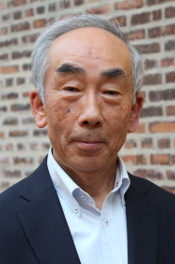
Bio: Received the B.S., M.S., and Ph.D. degrees from the University of Tokyo, Japan in 1968, 1970, and 1978, respectively. After joining the Nippon Telegraph and Telephone Corporation (NTT) Labs in 1970, he has worked on speech analysis, speech recognition, speaker recognition, speech synthesis, speech perception, and multimodal human-computer interaction. From 1978 to 1979, he was a visiting researcher at AT&T Bell Laboratories, Murray Hill, New Jersey. He was a Research Fellow and the Director of Furui Research Laboratory at NTT Labs. He became a Professor at Tokyo Institute of Technology in 1997. He was Dean of Graduate School of Information Science and Engineering, and Director of University Library. He was given the title of Professor Emeritus and became Professor at Academy for Global Leadership in 2011. He is now serving as President of Toyota Technological Institute at Chicago (TTIC). He has authored or coauthored over 1,000 published papers and books. He was elected a Fellow of the IEEE, the Acoustical Society of America (ASA), the Institute of Electronics, Information and Communication Engineers of Japan (IEICE) and the International Speech Communication Association (ISCA). He received the Paper Award and the Achievement Award from the IEEE SP Society, the IEICE, and the Acoustical Society of Japan (ASJ). He received the ISCA Medal for Scientific Achievement, and the IEEE James L. Flanagan Speech and Audio Processing Award. He received the NHK (Japan Broadcasting Corporation) Broadcast Cultural Award and the Okawa Prize. He also received the Achievement Award from the Minister of Science and Technology and the Minister of Education, Japan, and the Purple Ribbon Medal from Japanese Emperor. He was accredited as Person of Cultural Merit by the Japanese Government in 2016.

Bio: Avrim Blum received his BS, MS, and PhD from MIT in 1987, 1989, and 1991 respectively. He then served on the faculty in the Computer Science Department at Carnegie Mellon University from 1992 to 2017. In 2017 he joined the Toyota Technological Institute at Chicago as Chief Academic Officer.
Prof. Blum’s main research interests are in Theoretical Computer Science and Machine Learning, including Machine Learning Theory, Approximation Algorithms, Algorithmic Game Theory, and Database Privacy, as well as connections among them. Some current specific interests include multi-agent learning, multi-task learning, semi-supervised learning, and the design of incentive systems. He is also known for his past work in AI Planning. Prof. Blum has served as Program Chair for the IEEE Symposium on Foundations of Computer Science (FOCS) and the Conference on Learning Theory (COLT). He has served as Chair of the ACM SIGACT Committee for the Advancement of Theoretical Computer Science and on the SIGACT Executive Committee. Prof. Blum is recipient of the AI Journal Classic Paper Award, the ICML/COLT 10-Year Best Paper Award, the Sloan Fellowship, the NSF National Young Investigator Award, and the Herbert Simon Teaching Award, and he is a Fellow of the ACM.

Bio: Professor McAllester received his B.S., M.S., and Ph.D. degrees from the Massachusetts Institute of Technology in 1978, 1979, and 1987 respectively. He served on the faculty of Cornell University for the academic year of 1987-1988 and served on the faculty of MIT from 1988 to 1995. He was a member of technical staff at AT&T Labs-Research from 1995 to 2002. He has been a fellow of the American Association of Artificial Intelligence (AAAI) since 1997. Since 2002 he has been Chief Academic Officer at the Toyota Technological Institute at Chicago (TTIC). He has authored over 100 refereed publications.
Professor McAllester’s research areas include machine learning, the theory of programming languages, automated reasoning, AI planning, computer game playing (computer chess), computational linguistics and computer vision. A 1991 paper on AI planning proved to be one of the most influential papers of the decade in that area. A 1993 paper on computer game algorithms influenced the design of the algorithms used in the Deep Blue system that defeated Gary Kasparov. A 1998 paper on machine learning theory introduced PAC-Bayesian theorems which combine Bayesian and nonBayesian methods. A 2001 paper with Andrew Appel introduced the influential step indexed model of recursive types in programming languages. He was part of a team (with Pedro Felzenszwalb, Ross Girshick and Deva Ramanan) that developed the first high-performance system based on a deformable part model for object detection in computer vision. This team scored in the top two places in the PASCAL object detection challenge (computer vision) in 2007, 2008 and 2009. He is currently working on algorithms for holistic scene understanding and on a type-theoretic foundation for mathematics.
Concluding talk

Abstract: As computers become more “intelligent” they also exhibit human-like biases such as sexism and racism. Not only does the data used to train these algorithms reflects society’s biases, the algorithms can also amplify these biases to improve their performance metrics. For example, if one naively trains a machine learning algorithm to filter resumes and find the most qualified candidates for certain jobs based on data on prior hires, computers will directly or indirectly discriminate based on features such as gender or race which are correlated with names and other words. With careful algorithm design, we study how computers can hopefully be more fair than typical human decision-makers, despite the biased training data. Some may argue that debiasing algorithms is inherently impossible. However, like self-driving cars which will inevitably get in accidents, the first step is to design systems that are safer or less biased than their human counterparts. The process of mathematically defining “fair” decision-making metrics also forces us to pin down tradeoffs between fairness and accuracy that must be faced and have been swept under the carpet by policy-makers.
Bio: Adam Tauman Kalai received his BA from Harvard, and MA and PhD under the supervision of Avrim Blum from CMU. After an NSF postdoctoral fellowship at M.I.T. with Santosh Vempala, he served as an assistant professor at the Toyota Technological Institute at Chicago and then at Georgia Tech. He is now a Principal Researcher at Microsoft Research New England. His honors include an NSF CAREER award and an Alfred P. Sloan fellowship. His research focuses on machine learning, human computation, and algorithms.
Immediately followed by


